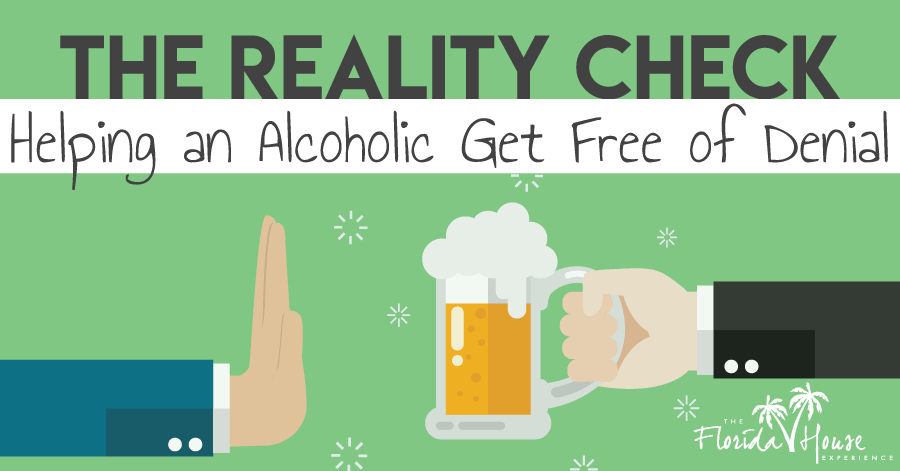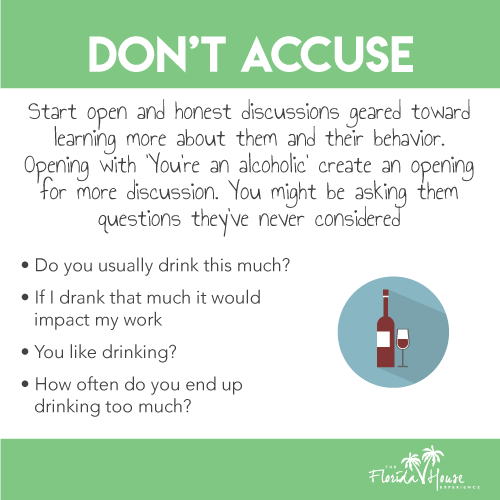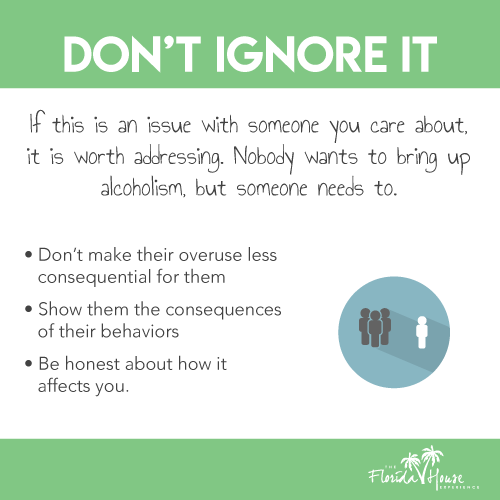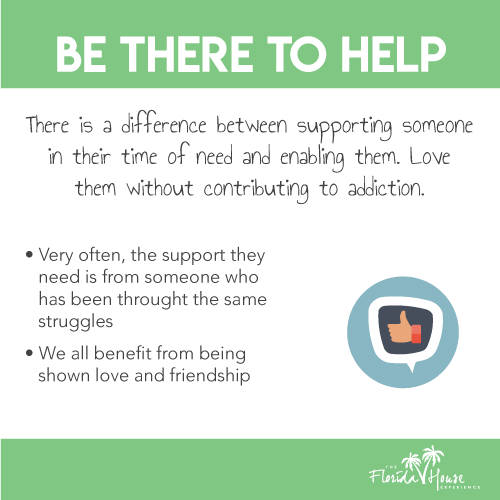
For those in the depths of abusive substance use habits, seeing reality is rarely easy. Denial is a powerful state of being, and it’s far easier to believe everything is normal than it is to admit there’s a problem.
If you’re seeing signs of an alcohol problem in friends or family, it’s not uncommon to be angry or frustrated, but how you behave can make a big difference in helping someone struggling to see the light. Despite this, finding the right strategy is sometimes easier said than done.
Simply pointing fingers or demanding action can send the wrong message, especially for someone deep in denial. For alcoholics who don’t want to see reality, being confronted with uncomfortable accusations can only encourage poor behavior, making a problem worse — not better. By taking a different approach, however, you can increase the likelihood that an inevitable intervention will work as desired. Here’s what you can do to help an alcoholic accept reality.
Ask Questions

Most alcoholics realize that their behavior isn’t normal, but connecting the dots sometimes takes a little mental exercise. By asking questions to start honest, open discussions, you’re far more likely to make headway. Some questions you can consider, depending on the circumstances, include:
- Does this kind of thing happen often?
- Do you drink like this every day?
- Are you worried when this happens?
- Do you like feeling this way?
While it’s likely you know the answer, these kinds of questions prompt a substance user to consider challenges and consequences they otherwise may not. Asking questions won’t mitigate all anger — most people dislike being questioned about their actions — but are likely to lead to less hostility than a blatant accusation. It’s also far easier to express concern in context, and you’re less likely to receive a defensive response when speaking up seems more natural.
As the situation evolves, customize these kinds of questions to highlight any personal challenges, like relationship troubles, problems at work or financial struggles that may come from excessive drinking.
Be Honest

When addressing your concerns, always be kind and caring rather than angry and accusatory. Point out things you noticed specifically, and use gentle language. For example, if your friend drank heavily the night before and ended up missing work the next day, say something like, “I noticed that you drank too much and missed work today. That’s very concerning. Is everything okay?” Your friend will likely brush things off, but the more you’re honest and open in your communication the more likely it is that your point will eventually resonate.
Never tell lies or make excuses, like “No, you weren’t that drunk last night,” “No one noticed that mistake you made at work” or “Everyone goes a little too far sometimes.” This kind of language obfuscates the issue and reassures a substance abuser that his behavior is normal and acceptable.
Deflect Standard Defenses
Most alcoholics in a state of denial use the same standard lines, like “I could quit anytime I want to,” “You’d drink, too, if you were living my life,” or even things like “I’ll cut back when you stop asking.” Unfortunately, these tend to be used simply to deflect questions or accusations rather than representing the truth of a situation.
Instead of accepting these kinds of responses, continue to ask questions and gently indicate signs of a problem. If a substance abuser responds by telling you they could quit at any time, ask why they haven’t chosen to quit. If a friend tells you that you’d drink, too, ask them to talk more about why alcohol has become a coping method and what situations specifically are encouraging dangerous behavior. By challenging these kinds of statements, substance abusers may realize that these common defenses are lies, not the truth.
Offer Support

When you see signs of a problem in those you love, be a supportive friend. Let them know that you realize things may be tough right now, but you’re always here to talk things out. Offer plans for activities that don’t involve alcohol, like day trips to a mall, the zoo or an amusement park, or host a simple movie marathon. Reinforce the fact that fun and drinking don’t have to go hand in hand. This may not be easy, as many alcoholics will reject plans that don’t allow normal alcohol consumption, but with your support, your affected loved one may be more inclined to respond to an intervention.
In some cases, offering support may cross the line into enabling, so it’s important to understand the limitations. For example, offering a place to live to an alcoholic friend who has lost their job can provide much-needed stability, but if the situation carries on too long, your hospitality may turn into an invitation to stay at home and drink all day. Realize that there are boundaries to support, and don’t be afraid to enforce them if appropriate.
Be Patient
In dealing with addiction in any context, patience is important. Overcoming a substance use disorder is never easy, and sometimes, failure is a part of the process. Instead of assuming a single conversation will spur a long-time user to give rehabilitation a shot, be patient in all aspects of how you interact. Working through addiction is a personal journey, and you can’t force progress. All you can do is offer advice, flag concerning behavior and provide appropriate support.
Handling addiction is a lifelong battle, but the right resources can make a difference. By helping an alcoholic friend or family member accept reality and understand the importance of making a change, you can do your part to promote healthy choices and the importance of recovery.






